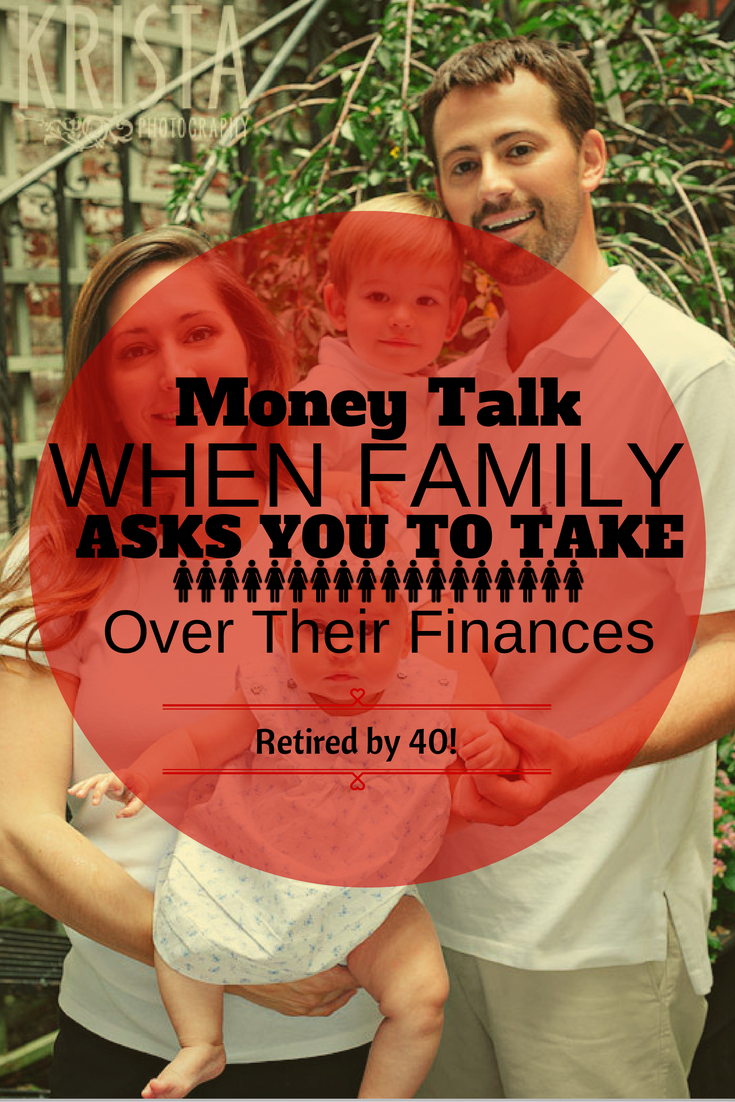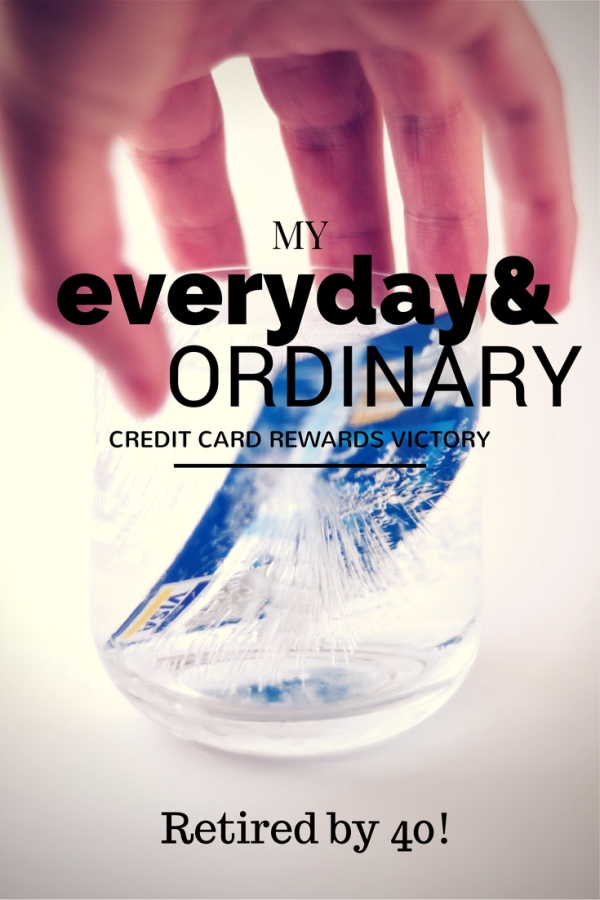“We all want to get the most out of life. Great family, an education, a business, a home. But for a growing number of Americans, the price of getting ahead is higher because of a financial system that leaves millions underserved.”
This is the beginning of the new (short) movie Spent: Looking for Change. I was trolling around on yahoo one day and happened upon an article about it by chance. Of course, once I read what the movie was about, I had to go check it out!

Basically, the movie chronicles the stories of several families and individuals hit hard by student loans, medical debt, job shortages, and bad credit history. I believe the aim of the movie is to point out flaws in our country’s banking, education, and other systems that directly affect whether Americans sink or swim financially. Regardless of your feelings on any of these topics, you have to admit that these families are faced with tough situations.
How does this happen? How does our American banking people leave millions without access to traditional banking?
Medical Costs:
The most common cause of personal bankruptcy in the United States is medical bills. Medical care is life-saving and necessary – we can all agree on that – but it’s also expensive, even with good insurance. So what is a family to do when they’re saddled with unbearable medical debt?
Alex and Melissa, the first couple in the film, found themselves in this very situation. In fact, the movie starts with Alex going to a pawn shop to sell his beloved guitar. He never saw himself at pawn shop unless he was getting a great deal. What he didn’t realize is that those deals were other people’s dreams. Alex had a career in music, and it was through that career that he met his wife Melissa. They married very quickly and had a son, who was then diagnosed with autism. To make matters worse, Alex was diagnosed with Multiple Sclerosis, leaving him unable to work. Understandably, this family has expensive medical bills, and is living only on Melissa’s income. They do not have credit cards, or any sort of auto loan debt. But one month, they are unable to cover the medical bills on top of their mortgage and other daily expenses, so they turn to a payday loan. Over the course of the payday loan, Alex and Melissa have paid $1,700 in fees (both interest and to extend the loan for 2 weeks at a time) on a $450 loan. They literally live paycheck to paycheck
On payday, because bills are due so soon, Melissa cashes her check and runs around town for 2-3 hours paying bills at the physical places of business. So, in additon to being very tight on money, she has to spend time and gas money to pay her bills, only to have no money left until payday rolls around again. The last stop she makes, after paying all of the bills that she HAS to pay, is the payday loan places, where she pays a fee to extend the loan for another two weeks.
Alex and Melissa paint a dire picture of what can happen when life gets you down. Alex and Melissa are both lucky and smart in that they thought they were being responsible by not having car loans or credit cards. As a result, they have no debt, but they also have no savings to fall back on.
Lack of Credit:
In the United States’ banking system, no credit is viewed as bad credit. How on earth did that happen? Justin, from Houston Texas, runs a small production company and is looking to buy a house and marry his girlfriend, but because of past credit mistakes, he cannot get a mortgage. For 4 years now he has been very careful, trying to repair his credit, but it will still be years before his credit is even deemed good enough to get any sort of loan.
His credit is so bad that he cannot get a traditional checking account. So, he goes to check cashing places, where he loads his paycheck on a prepaid card. However, that prepaid card charges him a dollar for every transaction. If Justin continues on this path, he will spend more than $40,000 in fees over his lifetimes. As their shopping for a mortgage, Brittany has good credit, but not enough income to take out a mortgage on her own.
Could he pay with cash? Possibly. He could also switch cards. There are cards that only charge you $1.00 a month and have all of the protection of a credit card, like fraud protection and customer service. Those charges, coupled with the check cashing fees is making a difficult situation harder for Justin and Brittany. According to the movie, 70 million americans are in the same boat as Justin – lacking access to the traditional banking system because of creddit mistakes or no credit.
What types of mistakes would someone have to make to have that bad of credit?
Good Question! I wondered about this myself. Of course I have made credit mistakes, but I don’t have experience with really seriously bad ones ;-) So, I googled it, and came up with bankruptcy, accounts in collections for long periods of times, and no credit.
Hard Times
Tiffany fell on hard times – even after she set herself up for success. She always paid herself first, and had built her 401K to over $100,000 when her mother fell ill. Being a nurse, and knowing she had some savings to fall back on, Tiffany quit her job to take care of her mother, thinking she could jump right back into the workforce when her mother either recovered or passed away. Now, she cannot find work – even with her MBA and her nursing degree. She had to take her daughter ouf private school and just took out a title loan on her car so that she could make ends meet.
Unfortunately, nearly half of all US households live paycheck to paycheck. Is every situation the result of something unfortunate, or is it the result of mismanaged finances? I”m going to assume that a portion of these households just don’t know how to manage their money. To be fair, it’s hard. Budgeting, savings, and fruglaity are not easy. Ever.
These people are in a state of desperation when they take out a title or payday loan. Melissa and Alex just extended their loan again. Every now and then they have a little money that they could put towards paying off their payday loan, but they discovered that the title loan company will not let you make partial payments, so instead of saving the money meant for the loan, they either use it to pay and extension fee or put gas in their car. The finish line never comes.
And this domino effect even hits Americans with access to normal banking. High-low check sequencing is used by many financial institutions to maximize overdraft fees. This has actually happened to me. What the bank does, is put through larger transaction first, meaning that the account overdrafts faster. Underserved American families spent the same amount of fees that a typical American family spends on groceries – to the tune of $89 billion a year. Check cashers charge a fee, and then these families use extra gas to get places to pay their bills.
Student Loans
This one is in the news constantly, so of course the film brings this financial pitfall to the surface. Debbie is a struggling designer, the first in her family to graduate from college. at 14 she immigrated from Argentina with her parents. She makes leather bags by hand, and business is picking up, but her student loans are dragging her down. To the tune of almost 100K, they are causing her to be declined for a business loan. She pays her loan payments on time, but because of the sheer amount of debt the only card she can get to build her credit is a secured card with a $250.00 daily limit. This makes it very hard to buy the supplies she needs to make her handbags, and therefore is having to cancel the large orders that have the ability to grow her business.
Spent: Looking for Change would like to blame the entire financial services industry for the financial woes of Americans. The financial services industry have taken people that were just a bit down and dragged them down even more, according to the meeting, and I would agree with that, which begs the questions:
What happens when a family runs out of options?
What happens when an entrepreneur gives up her dream?
Is it hopeless?
Let’s talk about this concept:
Empowerment: You have the ability to affect change in your own life.
My generation is realizing this and working to change the system. In San Francisco, business are helping people to pool their money and lend. In New York they’re making affordable loans to future businesses, and in Atlanta there are people building a new type of credit score using rent and monthly bill payments.
I’m all about taking responsibility for your actions, but this movie really struck a chord with me. So I’m asking you, my readers:
What happens when a family runs out of options? What happens when an entrepreneur gives up her dream? What effect does that have on the economy Is it hopeless? What can we do to help people who are really trying to make smart decisions, but the financial system keeps dragging them down?
Sidenote: There was a note at the end of the film about the people featured: Justin is still looking for a home, Tiffany found a full-time job, Debbie hasn’t given up. She’s still trying to get a small business loan. Alex and Melissa’s neighbor heard about them and helped them to pay off their loan.
*This post may contain affiliate links
Linked up at:
Think Pink Sunday, Sunday Showcase, Happiness Is Handmade,Nifty Thrifty Sunday,That DIY Party, It’s Party Time, Sunday Showcase, Around Tuit, Mix It Up Monday, Creative Mondays, Bloggers Brag ,Made By You Monday ,Monday Pin It Party ,Motivate Me Monday ,Thoughtful Spot Weekly Blog Hop ,Monday Funday, Marvelous Monday ,Titus Tuesday ,Tuesdays at our home ,Tell Me About It Tuesday ,Tip Me Tuesday ,Tuesdays With A Twist ,The Inspiration Board ,Tutorial Tuesday ,Create Link Inspire ,Making a Home ,Something Fabulous Wednesday ,The Mommy Club ,Wow Me Wednesday ,Wake Up Wednesday, Adorned From Above Wednesday, Cast Party Wednesday ,Your Whims Wednesday ,The Project Stash ,Whimsy Wednesday ,We Did It Wednesday ,Wednesday Round Up ,Wine’d Down Wednesday ,Inspire Me Wednesday ,Whatever Goes Wednesday ,Something Fabulous Wednesday ,Wow Me Wednesday ,The Pin Junkie ,What To Do Weekends, Inspiration Gallery, Artsy Corner, Inspire Us Thursday, Thrifty Thursday, That’s Fresh Friday, KitchenFun and Crafty, Friday Frenzy, Inspire Me Please, Craft Frenzy Friday, Anything Goes, Pin Me Linky Party, Pin Worthy Projects, Friday Favorites, Best of The Weekend, Link Party Palooza, Friday Flash, Flaunt It Friday, Family Fun Friday, Frugal Friday, Weekend Bloggy Reading, Saturday Show and TellS, aturday Spotlight, Strut Your Stuff Saturday, Saturday Sparks, Saturday Sharefest, Serenity Saturday, Show and Tell Saturday, Get Schooled Saturday, Dare to Share Saturday, Skip The Housework Saturday, Silver Penny Saturday, A Little Bird Told Me














I just found our blog through the parenting pin it party and I’m so glad I did. I love your goal (want it too) and I will definitely be reading and following you.
Thanks Chantale!
I’m going to have to give that a watch later this evening. I think we obviously need a safety net in place, but I’m conflicted with rewarding bad behavior (not all people, just some who make bad choices perpetuating the cycle despite much better choices being available. Of course, it could be argued that without better education, the choices are available but not apparent). Great write up though, Gretchen!
Exactly! It’s a catch-22, and I really don’t know what the answer/solution is!
Another interesting post, and useful as ever! Thanks again for linking up to the Monday #pinitparty.
I stopped watching halfway through the video… $150 bucks for a phone bill, private school on nurses salary! Seriously!! That right there is what is wrong with most of the people in the video. I came to USA as a graduate student at the age of 23 from India with exactly $300 in my pockets. I grew up in a neighborhood that would make ghettos in America look like Park Avenue. Today, I am 41 years old with a total net worth close to $1.6 Million. Income wise I just made it to the top 1% this year. As a graduate student I started off with $300/month income. I went to an inexpensive school down south that gave me fee waiver as a graduate assistant. I paid $40 in rent and about $100 in other expenses. My diet was mostly rice and beans or top ramen. And I managed to save $100 to $150 every single month. I used to save 50% of my income at the time and continue to do so. I continue to drive my 1999 Nissan sentra and plan to use it till the day it falls apart. My cell phone bill never exceeded beyond $30. My clothes are from Ross or Target. I am appalled when people complain about money in this country. If you want to see real poverty go to Africa or India. It will teach you a thing or two about poverty! Despite its faults, America provides the best opportunity for upward mobility in the world. You already won the biggest lottery there is in this world: Being born an American citizen!!
Great blog btw. I have no doubt that if you continue what you are doing you will be able to retire by the time you are 40! Good luck!
It is frustrating, isn’t it! I watched it and kept thinking about all of the ways that those people could cut down expenses and take control back! For the article though, I wanted to focus on some problems with the banking system. Normally I’m all for personal responsibilities, but the medical bills one got to me since that is the most common cause of bankruptcy! But as I’m reading your story I’m amazed, first that you have come so far, and second that you have managed to avoid lifestyle inflation! You’re 100% right – we are a nation of complainers. More and more people want things handed to them rather than working for them :-)